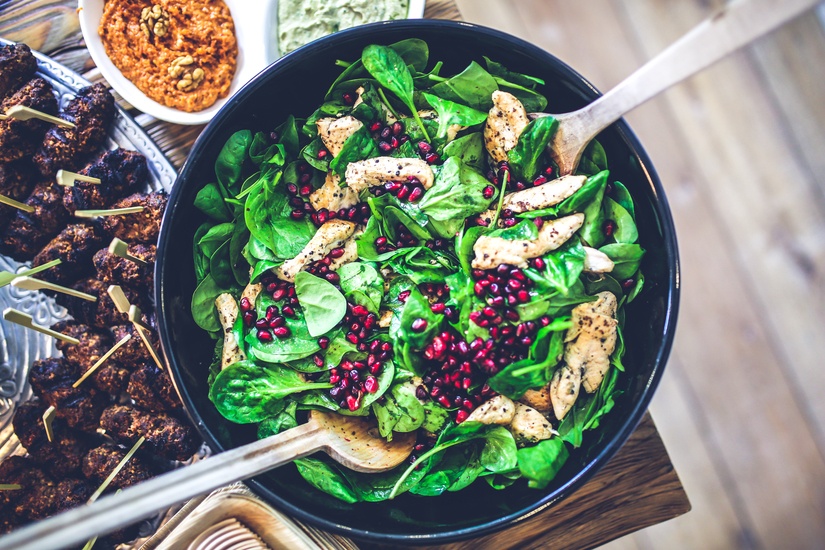The last time I was here I gave you a background on diets and what it actually means to eat healthy versus the latest fad diet. That’s all well and good but in continuation, how does one actually go about this whole seemingly complicated process. Well, a little bit of hard work is in order, but I promise you, after the initial bit of effort it does get easier.
How Many Calories do We Need? Let us do some basic Math.
Calculating the amount of calories you need to consume is totally individual. The best option if you’re starting out is to find a calculator online, which will give you numbers based on typical algorithms using your current weight, height, age, gender etc. In general, the recommended calorie deficit is not more than 500 – 700 calories per day, though this could vary a little.
This means that if your current calorie maintenance level (the number of calories you need to maintain your current body weight) is 2500 per day, you should eat 2000 per day. That takes your weekly calorie deficit to 3500 (500×7), which according to standard calculations equals 1 lb or 0.5 kg of weight loss per week. If you are close to your recommended ideal weight (within 5kg), I suggest creating a still smaller calorie deficit of around 200-300 calories only.
It is literally dangerous to your health if you restrict your calorie intake drastically. Remember what I said earlier about how your body burns calories just to make all your organs function. This is the reason why anorexia can be life-threatening. When the body is deprived of sufficient nutrients over time, the organs can actually suffer and even fail in the long run.
For women, it is recommended to eat no less than 1200 calories per day and for men not less than 1500 per day. And, even that I would say is less than the average person should consume, unless you’re a very tiny, old, inactive lady who needs only the bare minimum to function! So don’t use 1200 as a baseline regardless of your current size and activity level, most likely you need to eat significantly more than that even if you’re on a deficit.
Don’t follow a too-restrictive diet
This is almost a guarantee that you won’t stick to it. Remember to make small changes over time till it becomes part of your routine. It’s good to have a “cheat day” around once a week while you are on a calorie deficit. Eat your normal requirement of maintenance calories with no deficit. Treat yourself on this day (within reason) and allow yourself to have a portion of those delicious unhealthy goodies that you love. Just don’t go overboard!
Swati: A tip here! You know the first morsel of your food gives you the maximum satisfaction. And, the satiation levels keep on reducing with the subsequent morsels. So, when cheating, always make sure to chew longer and eat mindfully so that you get satisfied in the first five bites and then you no longer need to crave your dessert or snack.
Plateaus
Some people find that after a time of prolonged dieting or calorie deficits their weight loss just stalls. This is the dreaded plateau.
The theory is that your body, wonderfully complex machine that it is, will adjust to the continued calorie deficit and start to conserve energy. That’s partly why a cheat day once a week is a good idea. It prevents your body from getting too used to the lower consumption of calories. Despite that, if you find your weight loss is stalling, try a week of eating at maintenance to allow the body to reset itself.
This is another reason why huge calorie deficits or eating too little is bad, it will actually lower your metabolism (though not permanently). Your body will burn fewer and fewer calories to maintain itself and you will feel low on energy, and generally awful. Not only is it unsustainable, it is potentially harmful to you, as I said before.
If you have been yo-yo dieting for years, or have had very unhealthy eating habits for a long time then yes, you may have damaged your metabolism temporarily, but this is reversible. That may be the reason you feel you have a chronically low metabolism, but it can be fixed if you follow the tips to getting your diet back on a healthy track and ensure you get the right amount of calories and macro and micro nutrients. Even a small calorie deficit should be looked at as a temporary phase. It really isn’t sustainable over a long period of time. I would say you shouldn’t go more than 3 months at a stretch eating at a deficit.
Therefore if you have a huge amount of weight to lose, try and do it in phases of 3 months at a time, where you eat at maintenance calories for 1 week to a month at the end of the 3-month period to reset your body. Continue to eat healthy during this time, it doesn’t mean you can go back to eating junk food and stuff! Think of it as a milestone on your weight-loss journey.
When you get back to cutting calories remember to recalculate your calorie levels based on your new weight as your maintenance calorie level and hence deficit level will reduce, because when you lose weight your body requires less calories as well.
Drink enough water!
This cannot be stressed enough. While it’s easy to under-consume water, it’s very difficult to overdo it! Though the recommended amount is 8-10 glasses per day, think of it more as a guideline. If you live in a hot and tropical country like ours, you probably need more. If you exercise or sweat a lot, you need still more. Water is a critical part of pretty much every bodily function, and dehydration and kidney stones are just some of the effects of not drinking enough.
Sodium and Sugar
Your body needs a small amount of sodium to function. Unfortunately, most of us get far more than what we need from table salt. It’s well known that in excess, it can lead to heart disease. Even so-called ‘healthy’ home cooking usually contains far too much salt. In the short-term, excess sodium leads to water retention and bloating, which will make your tummy look bigger than it really is! You know how you sometimes feel extra bloaty when you eat Chinese food. That’s because of the sodium in the MSG.
Think of that happening to you on a regular basis, just that you don’t notice it. Therefore, stick to the recommended dietary guideline of 1500mg and no more than 2300mg a day. The calories counting websites will calculate your sodium consumption as well, based on your food logs, but 1500mg of sodium equals ¾ of a teaspoon or 3.75gms of common salt per day. Yes, that’s how little you really need!
Swati: So true, Nayantara. We do take far more salt than what we really need. In fact, most of the need of salt is fulfilled by the natural salt in the vegetables we eat so what we add is all supplementary to bring out the taste of the food. In fact, you can use lemon juice to bring out the natural saltiness in our food. It is a healthier way to add taste to the food.
Excess of simple sugars or carbs also causes bloating and women seem to be more susceptible to this. So when you restrict your salt and sugar intake, you may notice a weight reduction of upto 3 – 4kgs in the 1st week and your tummy going down by inches. That’s purely because of the water retention that you may have been living with. Drinking enough water will also help flush out the excess sodium from your body.
Not all calories are created equal
What that means is that 100 calories of spinach is not the same as 100 calories of a burger! They may give you the same amount of energy in absolute terms, but the nutrition provided by both is totally different. By nutrition I mean fibre, vitamins, minerals and things like that. Also, you need around ½ kg of spinach to get 100 calories, whereas a few bites of a burger may contain 100 calories!
It’s obvious the spinach will fill you up for longer and give you more nutritional elements. Not that I’m advocating you to eat only spinach, but that’s just an example to explain what I mean! In general though foods high in fibre are healthy, keep you satiated longer and are great for your digestive system, so make sure you get enough of them.
Do you have to Weigh and Measure your food for the rest of your life?
I think if you calorie count every morsel of food you put in your mouth for 1-3 months or even however long you need to reach your goal weight, it will be an eye opener on what you actually consume and will help you eat more mindfully. Use this as a test to develop a few meal plans that you can improvise on over the long run. After that you will probably have a good idea on how much is a reasonable portion size for you, and hopefully, you will be able to eat more intuitively.
Don’t get too obsessive about it once you’ve reached goal weight. At this time, you can log calories only a few days every few months to make sure you’re still on track. The same websites and apps that help you count calories will also track your macro and micro-nutrient intake, and you’ll know where you’re falling short or consuming too much of anything.Eating out can usually be full of pitfalls as there’s no way of knowing how much salt, oil etc. is used in preparation of a particular dish, and it can vary widely from place to place. Try and choose healthier options on the menu though and restrict eating out to just once or twice a week if possible.
In conclusion I just want to say that most things in moderation are fine. Extremes, whether alcohol, under or over-eating or even over-exercising, are best avoided. Try and live a balanced life, as the Buddha said: To keep the body in good health is a duty… otherwise we shall not be able to keep our mind strong and clear.
And good luck on your journey to getting healthier!










Hi Nayantara,
Nice write up.
Interesting. I am also into reading healthy food habits…..
Take care
Ruchi
Ruchi! Glad you enjoyed it 🙂
Informative post Nayantara 🙂 🙂 I will try to add on these healthy tips to follow a healthy lifestyle.
for more details regarding fitness and health visit http://www.femaleadda.com/fitness
This article has helped me a lot in improvising my health & also developing good fitness & physique thanks for this article
That’s amazing, I’m glad you’re putting this info to use, are you following an exercise routine as well?